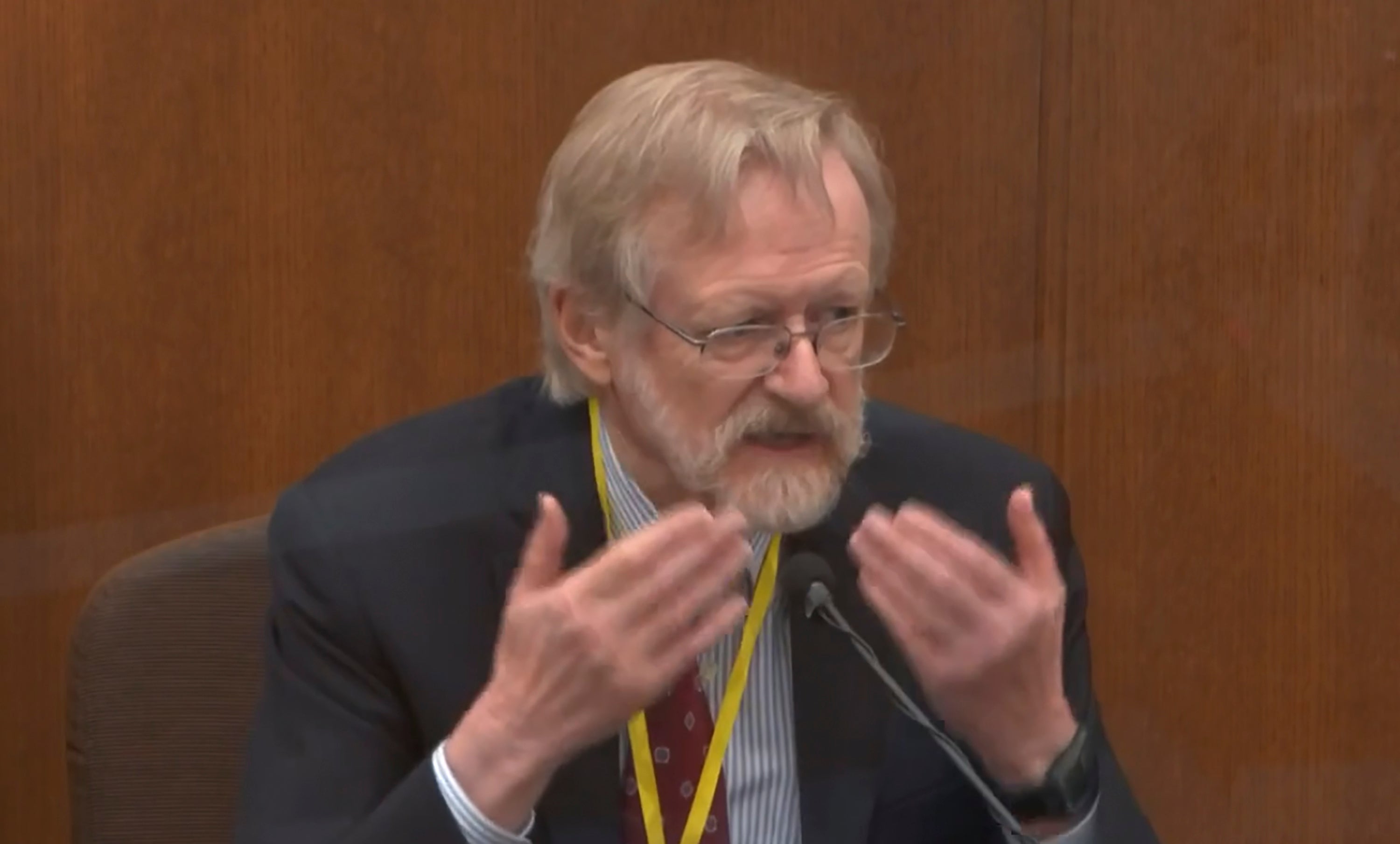EXPLAINER: Why would an expert witness go without pay?
Experts in medicine can command thousands of dollars for testifying in American courtrooms, but prosecutors made a point of letting jurors know that Dr. Martin Tobin was not being paid for his appearance Thursday at former Officer Derek Chauvin’s murder trial in George Floyd's death

Your support helps us to tell the story
From reproductive rights to climate change to Big Tech, The Independent is on the ground when the story is developing. Whether it's investigating the financials of Elon Musk's pro-Trump PAC or producing our latest documentary, 'The A Word', which shines a light on the American women fighting for reproductive rights, we know how important it is to parse out the facts from the messaging.
At such a critical moment in US history, we need reporters on the ground. Your donation allows us to keep sending journalists to speak to both sides of the story.
The Independent is trusted by Americans across the entire political spectrum. And unlike many other quality news outlets, we choose not to lock Americans out of our reporting and analysis with paywalls. We believe quality journalism should be available to everyone, paid for by those who can afford it.
Your support makes all the difference.Experts in medicine can command thousands of dollars when they testify in American courtrooms, but prosecutors made a point of letting jurors know that Dr. Martin Tobin was not being paid for his appearance Thursday at former Minneapolis police Officer Derek Chauvin’s murder trial.
Tobin, a lung and critical care specialist at the Edward Hines Jr. VA Hospital and Loyola University’s medical school in Illinois, testified that George Floyddied due to a lack of oxygen from being pinned to the pavement with Chauvin's knee on his neck.
After establishing Tobin had more than 40 years of experience, prosecutor Jerry Blackwell asked about his work as an expert witness. Tobin estimated that he has testified at about 50 court proceedings, particularly in medical malpractice lawsuits, but never in a criminal case.
That's why, Tobin explained, he was not charging a fee this time.
“Well, when I was asked to do the case, uh, I thought I might have some knowledge that would be helpful to explain how Mr. Floyd died,” he said. “And since I’d never done this type of work in this nature before, I decided I didn’t wish to be paid for it."
The point immediately struck Rachel Moran, a professor at the University of St. Thomas School of Law in Minnesota, as an unusual arrangement that could benefit the prosecution team.
She said Blackwell's decision to raise it as he introduced Tobin to the jurors seemed to be clear strategy.
“I think the state is very much getting out in front,” she said. “This is a renowned medical expert who’s not a hired gun. He’s someone who is simply so concerned about this issue, that he’s here to share his expertise for free. I think that’s exactly how they want to paint him.”
Experts will sometimes offer a discounted rate when criminal defendants are struggling financially or because their area of expertise is narrow, Moran said.
She and other experts struggled to name another expert witness for the government who declined payment.
The Chauvin case is unusual in many ways. Some of the prosecuting attorneys also are working for free, and two of the attorneys in the courtroom each day are assistant attorneys general.
Even though paid expert witnesses are the norm in courtrooms, attorneys frequently try to exploit those arrangements. The defense will ask prosecution witnesses how much they were paid and prosecutors do the same to experts presented by the defense.
Disclosing it early during testimony can minimize potential damage to his or her standing with jurors, experts said.
Prosecutors asked other witnesses to tell jurors the fee they received for reviewing case materials and testifying.
Jody Stiger, a Los Angeles Police Department sergeant acting as an expert on police use of force, said he received a flat fee of $10,000 and another $2,950 for appearing at trial. Dr. Bill Smock, police surgeon at the Louisville Metro Police Department in Kentucky, also testified Thursday that he charged a $300 hourly rate.
Laurie Levenson, a professor at Loyola Law School, said the state's decision could have risked another attack from the defense: Arguing that Tobin was so personally invested in the case that he testified for free.
Eric Nelson, Chauvin's defense attorney, did ask Tobin to tell jurors his usual rate as an expert witness — $500 per hour.
“But you agreed to waive your hourly rate for this time?" Nelson asked. “You felt it was an important case, right?”
“Yes,” Tobin said.
Nelson then moved on, using much of his cross-examination to question whether illegal drugs and underlying medical problems caused Floyd's death.
That was a strategic decision too, said John Hollway, associate dean of the University of Pennsylvania Law School.
Trying to suggest an expert witness is biased could be effective or “it could look like you’re desperate," Hollway said. "This is why being a trial lawyer is difficult.”
